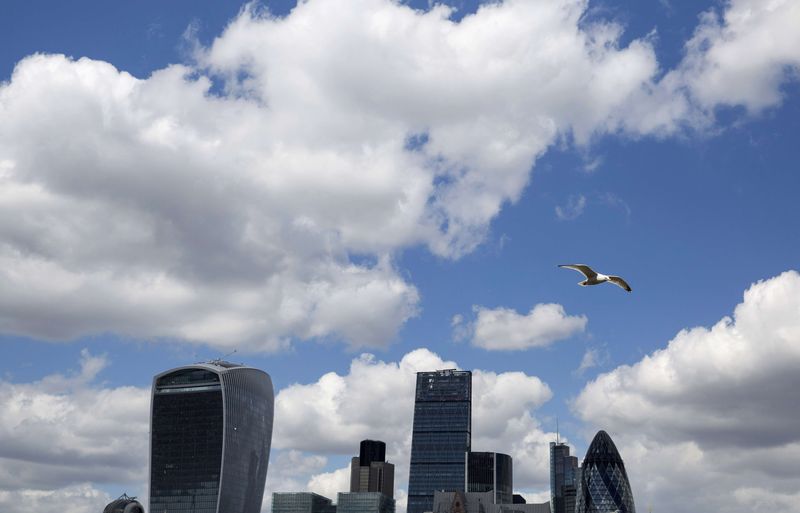By David Milliken and Sarah Young
LONDON (Reuters) - Britain sucked in imports in the first three months of 2015, and its large services sector performed weaker than first thought, casting doubt over the strength of its previously robust recovery.
The economy grew 0.3 percent in the first quarter, the Office for National Statistics said on Thursday, confirming an initial estimate which the Bank of England and most other economists had thought too gloomy.
The first-quarter growth rate was half that seen in the last six months of 2014. Sterling, the strength of which was part of the problem in the first quarter, fell against the dollar after the data.
Economists said they still think the slowdown will prove temporary.
"We remain optimistic ... that the UK economy is probably already back on track again," said Vicky Redwood from consultants Capital Economics.
Last week the BoE forecast that Britain's economy would grow by 2.5 percent this year. GDP expanded by 2.8 percent in 2014, its fastest growth rate since 2006 and higher than in any other major advanced economy, as Britain caught up on some of the ground lost during the financial crisis.
Economists were wrongfooted by the downward revision to growth in the large services sector, which contrasted with earlier upward revisions to growth in industrial output and construction. Weakness in the transport and communications sector weighed on the services figures.
But it is the surge in imports, driven by oil, machinery and 'transport equipment' which includes cars, that is likely to revive concerns that Britain's recovery is too reliant on domestic consumers.
Net trade knocked 0.9 percentage points off the rate of GDP growth in the first quarter, compared with a 0.8 percentage point boost in late 2014, the biggest drag since mid-2013.
"The economy is being driven again by consumers, and ... the unbalanced pattern of growth is likely to result in a slower expansion of GDP in 2015 than many have been expecting," said Chris Williamson, chief economist at financial data firm Markit.
Sterling rose to its strongest on a trade-weighted basis since August 2008 in March, making British exports more expensive abroad, especially in the euro zone.
Trade figures are often volatile on a quarterly basis, and the picture for business investment -- another weak spot in Britain's recovery -- were more promising.
The ONS said business investment rose by 1.7 percent in the first three months of the year, the strongest quarterly growth since Q2 2014, beating economists' forecasts for a 1.0 percent rise, after a decline of 0.9 percent in late 2014.
Household spending rose by 0.5 percent, softening slightly since the end of 2014. But most economists expect it to grow strongly in 2015 as a whole, as falling prices for basics such as food and fuel enable consumers to splash out on more discretionary spending.

Consumer confidence surged this month to its highest level in a year as more households expect their finances to improve in the coming 12 months, a survey showed on Thursday, while banks said mortgage approvals hit their highest in nearly a year.